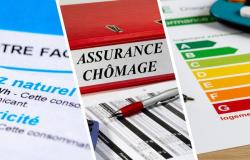In Chapdes-Beaufort, in Puy-de-Dôme, Maurice Augheard, 72, came to vote “because Europe, we have to stick to it, for the euro (…) for peace, so that we can be united.” “It’s a right, those who don’t vote have nothing to say,” commented Albert Coulaudon, 83 years old.
In the overseas territories, some of which began going to the polls on Saturday, participation is down slightly compared to the 2019 election, particularly in the Antilles, according to data communicated on X by the prefectures . In Martinique, at 5:00 p.m. local time (11:00 p.m. Saturday in Paris), the participation rate was 7.95% compared to 10% in 2019, and, in Guadeloupe, 10.87% compared to 12.10% five years earlier.
In New Caledonia, at 4:00 p.m. local time (7:00 a.m. Sunday in Paris), this rate reached 13.53%, compared to 16.19% in 2019, according to the High Commission of the Republic. The vote is taking place under high security in the archipelago, after the riots which shook Le Caillou. According to the High Commission of the Republic, “92% of polling stations” were able to open.
The polling institutes will communicate their first estimates of results at 8:00 p.m. (in mainland France) when the last offices in major cities close.
Out of no less than 38 lists, at best seven of them seem likely to cross the 5% threshold required to obtain MEPs.
More than 49 million French people are called upon to elect their 81 MEPs for the next five years.
Around twenty other countries are called on Sunday to elect their representatives to the European Parliament (720 in total) where the far right is expected in force.
In France, if the poll curves have varied little, two factors can create surprises: participation and the uncertainty of choice, with 15 to 20% of voters saying they are capable of changing their minds even in the voting booth.
In all scenarios, victory seems promised to the RN list of Jordan Bardella which has been at the top of the polls for months and could increase its already high score of 2019 (23.34%) by almost ten points.
By adding the 5.5% lent on average to the Reconquest list! of Marion Maréchal and the sovereignist “small lists” (Asselineau, Philippot, etc.), the far right could approach 40% and impose itself on electorates that have until now been reluctant, retired or executives.
Riding on his popularity with selfies and videos on social networks, Jordan Bardella, who made the vote an “anti-Macron referendum”, benefited from subjects considered priorities by the French, such as purchasing power and immigration, without being penalized by the war in Ukraine or the somewhat laborious debate against Gabriel Attal.
Read also
What are Europe’s challenges for the next legislature?
The majority on the defensive
Opposite, the majority tried to dismantle what it calls the “hidden Frexit” of the RN which wishes to be able to constitute a “blocking minority” in the European Parliament on subjects like “punitive ecology”.
But the list led by Valérie Hayer, a little-known outgoing MEP, struggled to mobilize Emmanuel Macron’s pro-European electorate.
This despite the multiple interventions of the Head of State, from his speech at the Sorbonne on the future of Europe to his television interview on the evening of the D-Day commemorations on Thursday, with the opposition accusing him of installing a “false duel” against the RN.
Dissolution, reshuffle, coalition with the Republicans… Until now, the Head of State has seemed to rule out any “national” consequences of this “European” election and could postpone all this until the fall after the Olympic Games.
In the meantime, he must vote at midday in Le Touquet and will spend election evening at the Elysée, surrounded by advisors. It is not excluded that it will also bring together the leaders of the presidential camp.
Given around 15% (compared to 22.42% in 2019), the majority list is even under threat from that of Raphaël Glucksmann’s PS-Place publique, which should record a clear progression compared to its score of 6, 19% in 2019.
Read also
Gabriel Attal against Jordan Bardella: and the losers are…
Tense atmosphere on the left
The lead of this list over that of LFI will be closely scrutinized. Manon Aubry attacked hard during the campaign, accusing Raphaël Glucksmann of “betraying” the left-wing Nupes alliance.
Jean-Luc Mélenchon is counting on a favorable dynamic at the end of the campaign, marked by outbursts in the Assembly on support for Gaza in an attempt to mobilize a young electorate and go beyond the surveys placing them around 8 .5% (compared to 6.31% in 2019).
Environmentalists could bear the brunt of this “war of the left”. Given around 5%-6%, Marie Toussaint hopes that the polls will have underestimated them, like in 2019 when Yannick Jadot soared to 13.48%. The Communist Party, led by Léon Deffontaines, will have great difficulty reaching 5%.






